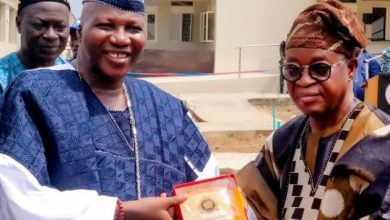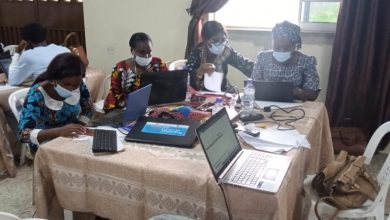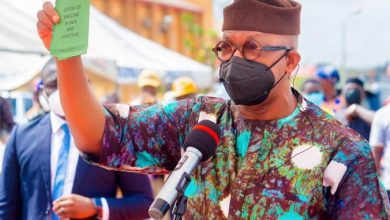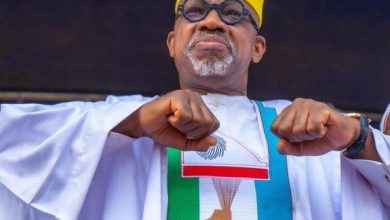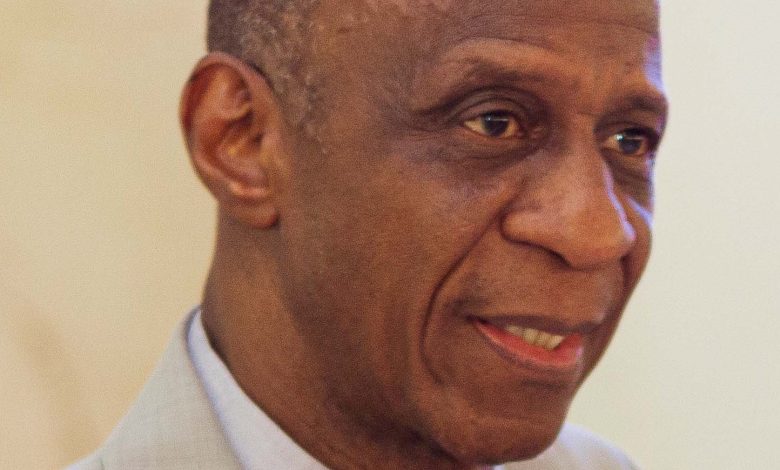
For the records: The burden of inclusivity and Nigeria’s Democracy
By Prof. Suleiman Elias Bogoro (FAS, FNIAS, D. Sc. Hon, NPL, OON, FSPSP) Immediate past Executive Secretary, TETFUND. Being the Keynote Lecture of the PENPUSHING 5TH ANNIVERSARY LECTURE held on Tuesday July 25th, 2923 at the Olusegun Obasanjo Presidential Library, Abeokuta, Ogun State, Nigeria
Presentation Sequence:
Appreciation of the pace-setting role of “PENPUSHING 5th ANNIVERSARY LECTURE” organizers. The traditional role of the media in defending human rights in all ramifications, especially FREEEDOM and the pursuit of HAPPINESS.
The commendable choice and timing of the theme and subthemes of the 5th Anniversary Lecture, coming barely two months after the inauguration of a new governments at federal and most state government levels in our country.
Appreciation of my choice as Keynote Speaker, being a fourth-level minority in the Nigerian context. Interrogating the obligation associated with The Burden of Inclusivity in Nigeria’s Democracy versus the apparent Benefits of Inclusivity and Nigeria’s prosperity.
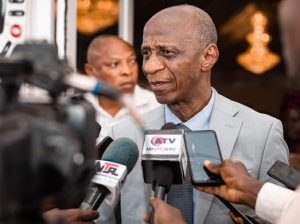
Disaggregating State responsibilities towards the Political minority as well as the Inclusivity Question for PLWD (persons living with disability) Women. Invariably, any discourse in respect of the existence or absence of inclusivity in Nigeria naturally invites the interrogation of the following:
Over-centralization, reminiscent of the outmoded Unitary government adopted by the Agui Ironsi government in after the first military coup of 1966, and largely adopted by most subsequent military governments.
The ongoing demand for Restructuring in order to address over-centralization to ensure more equitable distribution of resources and privileges to not just lower governments but to the most marginalized, less privileged and rural citizens of our country. In a recent public lecture at the Nasarawa State University Keffi,, former INEC Chairman, Prof. Attahiru Jega, insists that the unfortunate military style Unitary government (as opposed to true federalism and adoption of a people’s constitution) democratically asphyxiates (and so excludes) subnational governments has become the first factor responsible for the backwardness of Nigeria, perhaps as like no other country in the world. In his words, the centre is too strong and its governance philosophy is essentially based on marginalization of the majority who are too far from the centre of power. This is a classic case of non-inclusivity that government needs to address.
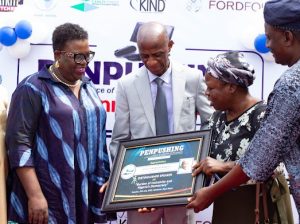
The case for more representative democracy to the benefit of women and most marginalized groups, including PLWDs. The exclusion of youths. The exclusion of visionary leaders and the recycling of non-performing public officials and politicians
The Compelling arguments for more inclusive and responsible governance in Nigeria A classic statement issued by the African Charter for Popular participation in Development and Transformation (Arushia , Tanzania, 1990) aptly capture the structural complex of overlapping development challenges of Africa. Thirty-three years after, the situation has hardly changed. It is reproduced for us to reflect over the failure of governance and leadership, that we must rise and reverse.
We are united in our conviction that the crisis currently engulfing Africa, is not only an economic crisis but also a human, legal, political and social crisis. It is a crisis of unprecedented and unacceptable proportions manifested not only in abysmal declines in economic indicators and trends, but more tragically and glaringly in the suffering, hardship and impoverishment of the vast majority of African people. At the same time, the political context of socioeconomic development has been characterized, in many instances, by an over-centralization of power and impediments to the effective participation of the overwhelming majority of the people in social, political and economic development. As a result, the motivation of the majority of African people and their organizations to contribute their best to the development process, and to the betterment of their own well-being as well as their say in national development has been severely constrained and curtailed and their collective and individual creativity has been undervalued and underutilized.
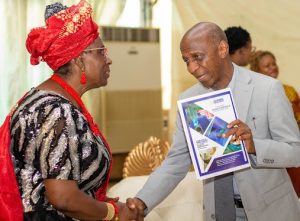
On women marginalization, YIAGA Africa had this to say about Women marginaluization in a Report in 2020:
Political marginalization of women in Nigeria can be attributed to factors such as cultural and religious beliefs which are further institutionalized by Nigeria’s political party system and structure. For instance, Nigeria’s current political party structure is built on party practices like the lack of internal party democracy, political exclusion, and marginalization of vulnerable groups. This is reflected in the constitution of the party leadership, membership management, and candidate nomination. All these processes are skewed to favor a select few. In addition, to the hurdle women face at the party level, there is the challenge of mobilizing voters to vote for a woman and then contesting in a flawed, highly commercialized and violent electoral process. These challenges make it difficult for women to emerge as candidates or win the election.
Democracy is dependent on the participation and representation of all citizens in democratic institutions and processes. These institutions and processes include election management bodies and elections, constitutional bodies and constitution-building processes, political parties and parliaments. Political Inclusion is Vital to Sustainable Democracy by Raul Cordinillo International IDEA June 28 2017
Regardless of the plurality of models and patterns, democracy is increasingly understood as having to do with inclusiveness. A democratic society is basically understood as an inclusive society. Inclusiveness, as we know, has not always been a defining feature of democracy but its importance has been growing steadily. Since the French Revolution, suffrage gradually expanded though it took more than two centuries to achieve its current feature of “relative universality”. We may also note that in doing so it happily survived a couple of major contradictions in terms, particularly the one of being called “universal” while excluding half of the population,
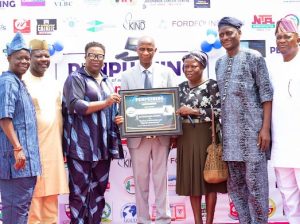
-Goran Fejic, Diversity and inclusiveness: Exploring options for a shared democracy, International IDEA Stockholm, October 2007
Demographically, Nigeria has a very young population. The median age is around 18, and youths below the age of 35 make up two-thirds of the population. Yet in the just-concluded presidential election, the two top contenders were well into their 70s. There was a report that a state governor appointed as the state commissioner for women affairs. A leading political party was reported have elected a sixty-year-old as its youth leader. In the outgoing National Assembly, the average senator is 59 years old and the average member of House of Representatives is 51. Half of the Nigerian population is made up of women, yet, women make up 7 of 109 senators and 22 of 360 representatives. It is estimated that around 12 per cent of Nigerians are living with disability, but persons with disability (PWDs) are invisible in Nigeria’s halls of power.
In 2017, YIAGA AFRICA’s Centre for Legislative Engagement conducted a study to determine the extent of the representation of women, youth (under 35 years old) and persons with disabilities (PWDs) in Nigeria’s legislative bodies. In the Senate, the study found women made up just 6.4 per cent of seats and there were no members of the youth and no PWDs. In the House of Representatives, only 5.8 per cent of the representatives were women, while youth made up 0.8 per cent. There were no legislators with disabilities. At the state level, the study found that only 4.9 per cent of representatives across all the State Houses of Assembly were women; 5.8 per cent were youth and 1.4 per cent were persons living with disability.
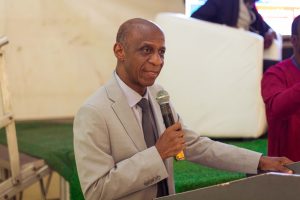
See for the People, Without the People The Crisis of Representation in Nigerian Politics by Dafe Oputu The Guardian MAY 9, 2019. At the local government level the study found only 6 per cent of councillors in LGA Councils were women, and only 0.6 per cent had disability. However, the report found that 29.7 per cent of these councillors were youth. Making this the only level of government where the share of youth in legislative positions coming close to reaching their share of the population.
The passage of the ‘Not Too Young To Run Act’ in 2018, which reduced the constitutional minimum age for running for various positions, was an important step for encouraging youth candidates. However, the high cost of running for office means that only previleged or those who have some loyal connection to the established godfathers can truly take advantage of this opportunity.
According to YIAGA Africa There were for the Presidential election, a total of 146 candidates (President and Vice President) contested in the 2019 elections. Of this number, 28 (19.2%) were women. This was an increase on the 18% women candidacy in the presidential election in 2015. In the Governorship election, a total Of 2,132 (Governorship and Deputy Governorship) contested in the 2019 elections. Of this number, 355 (16.7%) were women. This was an increase on the 11% female candidacy in the 2015 Governorship elections. 234 out of the 1,904 candidates in the Senatorial elections were women. This represents 12% women candidacy signalling a decrease from the 17% women candidacy in 2015. In the same vein, 4,680 candidates contested in the House of Representatives election. 543 (11.6%) were women. This was a decrease from the 15% female candidacy in 2015. Similarly, the state assembly election also recorded a decrease from 14% women candidacy in 2015 to 12.8% in 2019. Only 1,872 out of 14, 580 candidates in the state legislative elections were women.

–YIAGA Africa No Country Without Women: What data tells us on women’s representation in Government as at February 2020
The 2023 general elections delivered low numbers for women in the National Assembly. Only 3 out of 109 senators (2.7%) are women 17 out of 360 members of the House of Representatives are women representing 2.7% and 4.7% respectively, In the previous National Assembly, elected in 2019, there were 8 female Senators (7.3%) and 13 female Members of the House of Representatives (3.6%), which represents 4.5% of the entire Assembly
-Policy and Legal Advocacy Centre: Worrying Numbers for Women in 10th NASS May 18, 2023
The consequences of this lack of true representation are not merely symbolic. A legislature’s chief responsibilities are representation, lawmaking and oversight. None of these can be done effectively if the diverse interests and identities of the country (the federal character) are not reflected in those who represent and make decisions on their behalf. Nigerian legislators cannot speak up on issues when they are unaware of the realities and problems faced by the average Nigerian. That is why, sometimes laws enacted miss the priorities that need to be addressed and, at worst, cause unintended harm to most of the population.

The Electoral System
The type of electoral system a country has plays an important part in these disadvantaged groups’ political representation. In a first-past-the-post electoral system, (which Nigeria has used throughout its electoral history), the winner is the candidate with the highest votes, although not necessarily an absolute majority of the votes. This system has some known defects which tend to be inimical to the development of an inclusive democracy. They include the following:
- It excludes smaller parties fm fair representation
- It excludes minority groups from fair representation
- It excludes women and other disadvantaged groups like youth and PWD’s from the legislature
- It encourages the development of political parties based on clan, ethnicity, or region which may based their campaigns and policy platforms on conceptions that are attractive to the majority of people in their district or region but exclude or are hostile to others.
- It exaggerates the phenomenon of ‘regional fiefdom’ where one party wins all the seats in a state legislature. If a party has strong support in a particular part of a country, winning a plurality vote, it will win all, or nearly all of, the seats in the legislature for that area. This will exclude minorities in that state from representation and reinforces the perception that politics is a battleground defined by who you are and where you live rather than what you believe in.
- It leaves a large number of wasted votes which do go not towards the election of any candidate. If combined with regional fiefdom, this becomes particularly dangerous, because minority groups in the state may begin to feel that they have no realistic hope of ever electing a candidate of their choice.
- Majoritarian systems, versus Proportional Representation systems
A number of studies have shown that women have always had a slight advantage in Proportional Representation systems. Until 1970, this advantage was quite small: there is only a couple per cent difference in women’s representation in countries with majoritarian or singlemember district systems, versus countries with Proportional Representation or Multi-Member District systems. In the 1970s, 1980s and 1990s, however, there was a dramatic increase in women’s representation in PR systems, while only modest gains in majoritarian systems. Different electoral systems lead to different outcomes. Throughout the developed world in the 1960s and 1970s we saw a wave of what was called “second-generation feminism” – women demanding equal rights on a whole array of issues, among them greater representation in political bodies. In countries with PR systems, women were able to translate those demands into greater representation. In majoritarian systems, on the other hand, the same demands were made, but they were largely unsuccessful or only very modestly successful.

See for example The Implementation of Quotas: African Experiences Edited by Julie Ballington and International IDEA’s Handbook: Women in Parliament Beyond Numbers, Stockholm, International IDEA, 1998).
All of the 13 countries (Rwanda, Sweden, Denmark, Finland , Norway, Costa Rica, Iceland, Netherlands, Germany, Argentina, Mozambique, South Africa and Seychelles) with the highest percentage of women in parliament have either a proportional representation (PR) voting system or a mixed system (in which some candidates are elected through PR) – others are employed in constituency elections. Nine of the 13 countries have ruling parties that set quotas for women candidates.
The use of quotas
Worldwide, gender quotas are now increasingly viewed as an important policy measure for boosting women’s access to decision-making bodies. The uneven political playing field on which women and men compete has led to a number of reforms to safeguard the presence of women in parliament, primarily quotas or other positive action strategies. Governments and political parties have experimented with different types of quotas, with mixed results. Electoral quotas may be constitutionally or legislatively mandated or they may come in the form of political party quotas. They usually set a target or minimum threshold for women, and may apply to the number of women candidates proposed by a party for election, or they may take the form of reserved seats in the legislature.
There are a number of different quota methods for ensuring that women are represented in parliament, quotas through constitution or national legislation and quotas through political parties.

In a number of countries quotas for women have been written into the constitution or introduced through national legislation. They include Uganda where under the 1995 Constitution one parliamentary seat from each of the 39 districts is reserved for women. In Latin America during the 1990s, 11 countries passed national legislation requiring a minimum level of 20 to 40 per cent women candidates in national elections. Argentina was the first country to introduce a 30 per cent quota in the region and has also been among the most successful. In India, the 74th amendment requires that 33 per cent of the seats in local municipal bodies are reserved for women.
Other countries to mandate some form of parliamentary representation for women include Bangladesh (30 seats out of 330 or 9 per cent), Belgium, Italy and United Republic of Tanzania (where 20 per cent of seats at the national level and 25 per cent of seats at the local level are reserved for women). Eritrea (10 seats out of 105).
The experience from Africa is very encouraging: over 20 countries on the continent either have legislated quotas or political parties that have adopted them voluntarily. In fact, These measures have contributed directly to the increase in the number of women who have accessed the legislature: The average representation of women in sub-Saharan Africa in 1995 was 9.8 percent which increased to 15.1 percent in 2004. In fact, four of the 13 countries with the highest percentage of women in parliament are African: Rwanda Mozambique South Africa and Seychelles

SADC is the leading region in terms of gender representation in Africa. The SADC Declaration on Gender, obliged member states to reach a target of 30 percent of women in decision-making bodies by 2005. As a result, a number of SADC states are doing better than some of the oldest and richest democracies in the world, such as Australia, Canada, France, the UK and the USA. Four states in the SADC region, Mozambique, Namibia, Seychelles and South Africa, were in 2005 among the top 12 countries of the world as far as the representation of women in legislatures is concerned. Botswana, Namibia and Tanzania are close to achieving 30 percent female representation in their legislatures. Tanzania, in particular, has a quota entrenched in its constitution. Botswana doubled the number of women in its parliament in the last election, and Namibia has 42 percent female representation at the local government level.
The Marginalization Question
On the question of marginalization or exclusion based on many identity factors, the most emotive being those of faith and ethnic identities as well as regional divides.
For quite a while, Nigerians have used religious balancing to promote political inclusion between Muslims and Christians. The problem of exclusion goes far deeper and wider than the disagreement over ticket balancing. Nigeria should not rely simply on its tradition of Christian-Muslim ticket balancing or “parity” inclusion. as a guarantee of political inclusion. Instead the government should promote durable new norms and institutions to advance the inclusion of a much wider web of groups, ethnic, linguistic communities, women, youths, PLWD and other marginalized groups (Chris Kwaja, Joseph Sanyi, February 2023). Mercifully, Nigeria has a lot to learn from the stable political contestations over decades in Gambia, a fellow West African country where Muslims are outright majority, yet religious tolerance in that country is global reference.
The PLWD inclusion case that we cannot overlook. Nigeria’s Electoral Act as amended in 2022 and signed into Law by former President Buhari provides for persons with disability and special needs to be assisted at the polling Unit by providing suitable means of communication such as Braille, large embossed print electronic devices, sign language interpretation, etc.
The LGBT Question in Nigeria. The principle of inclusivity in a democratic setting in many climes could face difficulties in situation where dominant cultural and uncompromising religious beliefs are sacrosanct as it were. The LGBTQ question is a bitter pill to swallow under any guise in most African Countries, especially Nigeria where homosexuality and same sex marriage have been officially outlawedFormer President Jonathan signed the Law and Nigeria has remained one of the countries listed as one where harsh social, political, cultural and economic policies stifle the rights and privileges of non-heterosexual people.
Conclusion:
While Nigerian political leaders have been battling to meet global best practices in achieving inclusivity in governance in a delicately heterogeneous country, the prospects of benefits far outweigh the seeming liability or indeed burden of inclusivity.
The way forward as expressed are achievable and attainable, no doubt the political leaders at all levels are patriotically committed to dispensing justice “without fear or favour” as expressed in their vows and oaths of office.
Aristocracy and class exclusion must be halted to guarantee justice to all citizens. Granted the commendable early actions and policies of the President Bola Ahmed Tinubu Government, including his unprecedented hosting of NANS leadership as a father in the Presidential villa, as well as his public pronouncement that he will ensure that during his tenure, he will ensure that there will be no more ASUU strikes, Similarly, the carefully-selected Service Chiefs that represent the diversity of Nigeria, have hit the ground running and there are signs that it could lead to diminishing the assault of terrorists and criminals on the citizenry tio the relief of citizens of our country. it seems that we may as well be expecting more far reaching changes in both style and substance of governance to ensure justice and inclusion. Finally, there may be need for a declaration of State of Emergency and focussed Research on the nexus between exclusion, poverty, social injustice, unemployment, drugs, crime, prostitution and increased insecurity in a country where public ostentation contradicts the unjustifiable level of poverty in the country.
With collective citizen action as commendably led by the patriotic hosting of this Annual Lecture PENPUSHING MEDIA to focus on a key governance requirement towards changing the negative narrative of our country, it gives hope that we have the capacity to redirect our actions towards collective prosperity of our country for a veritable NATION STATE as we might never previously contemplated.
Long live the Nigeria of our dreams and aspirations.
Thank you for the privilege
FOOTNOTE: You want to share story with us? You want to advertise with us? You need publicity for product, or service, or event? Contact us on WhatsApp +2348073463653 or email penpushing@yahoo.com




